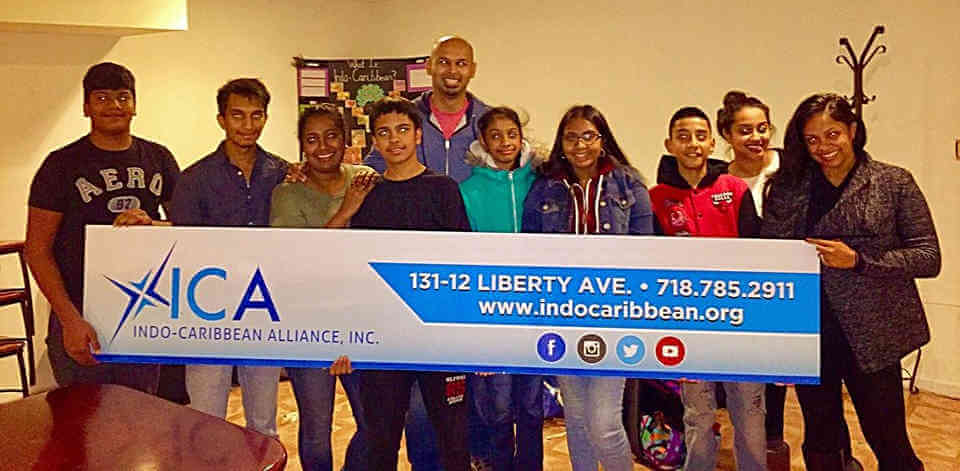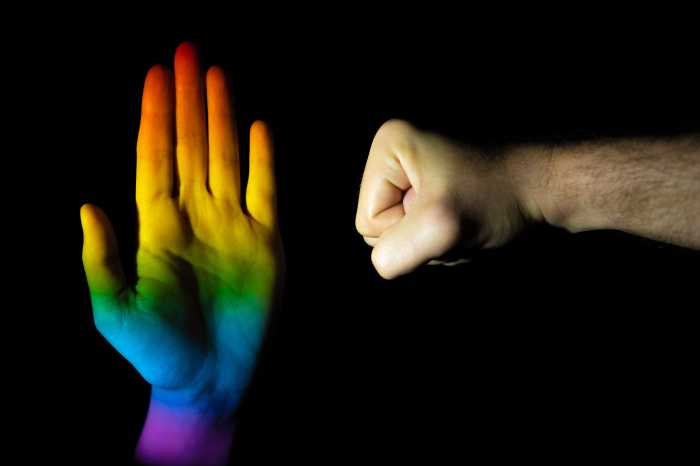The Queens-based group, the Indo-Caribbean Alliance (ICA), aims to promote and empower Indo-Caribbean communities in New York City. As an organization specifically created to address issues concerning this group and their advancement, in their short existence since 2013 — the group’s members have been instrumental in introducing programs and workshops to support their goals, said Vice Chair Artee Perumal.
“We were founded five years ago, and our mission is to serve and advocate for the Indo-Caribbean community in New York city by addressing the things they need, encouraging civic engagement and advocacy, and also identifying our community and identity,” said Perumal.
The Caribbean region is one of the most racially and ethnically diverse regions in the Americas. While many of these islands are typically known for their populations mostly comprising of people of African descent due to the Transatlantic Slave Trade, in a few countries there are also dominant and larger numbers of other racial groups.
Indo-Caribbean is a term that indicates people from the Caribbean region, who are of Indian descent. India in particular has a large Diaspora in the Caribbean due to the European indentured labourer system, which transported more than a half million Indians to the islands. Today those descendants comprise the dominant populations in Trinidad and Tobago, Guyana, and Suriname. Other countries such as Jamaica and St. Vincent and the Grenadines, also have significant but smaller populations of Indian descended nationals.
Areas in Queens including Richmond Hill, known as “Little Guyana,” Ozone Park, South Ozone, Queens Village, and Jamaica, have long been known as places where Caribbean-Americans and immigrants of Indian descent tend to migrate to. But those numbers have grown to expand beyond the borough particularly with the Guyanese. As the fifth largest immigrant group in the city — having a community organization to address a large swath of its population is needed because despite falling into two ethnic groups — neither quite encompass the true identity of Indo-Caribbean people, said Perumal. And without a group advocating for them, issues specific to their needs can end up taking the backseat, she added.
“We kind of get lost in the demographics,” said Perumal. “We are still considered West Indian, but in terms of the South Asian community, we also fit into that pocket of the population but not exactly the same way.”
The ICA is made up of 10 board members and several volunteers, and has worked diligently to affirm its community members by propelling their visibility through programming and workshops. They also organize community events and galas, offer tutoring for the youth and families. And like many immigrant communities — immigration services and support are a top priority, according to Perumal.
She says an important matter such as the upcoming census is an example of how the group’s categorization into either South Asian or Caribbean, can still leave them out of financial backing.
“When thinking of the 2020 census, a lot of groups will get funding but they won’t go back into our community, but we do exist,” she said.
Despite the existence of the group focusing on advancement, Perumal says there has been some criticism about the group’s founding. Most of it comes in the form of critics slamming the necessity of ICA for focusing on the needs of one racial group in the Caribbean, as opposed to all.
“We deal with that tension often from folks who say, “Why are you separating yourselves — this is just adding fuel to the fire,”’ said Perumal.
Often partnering with a multitude of Caribbean-centric groups, many that are not necessarily geared toward Indo-Caribbeans, Perumal says the ICA has no divisive agenda, which is often assumed. She cites her own identity as a Queens-raised Brooklynite of Guyanese heritage, who identifies with her Hindu faith, as an example of how Caribbean people can co-exist with multiple identities.
“We all wear different hats,” she said. “I can identify with people from the Caribbean, but also Hindu. It’s very important to be able to still identify yourself, even you share a community.”
The Indo-Caribbean community has distinct concerns, some that are unique to their Indian heritage, culture, and religions — but the overall goal of the ICA is to advance the Caribbean community in its entirety. The ICA partners with many Caribbean-based organizations — Indo-Caribbean focused or not — and supports these groups through functions, marches, and fund-raising. And they are always readily eager to receive other like-minded individuals who can financially support their mission, or join as members and volunteers.
“We always welcome volunteers to reach out to us because we are always looking for creative strategies and learning from our community,” said Perumal.




























